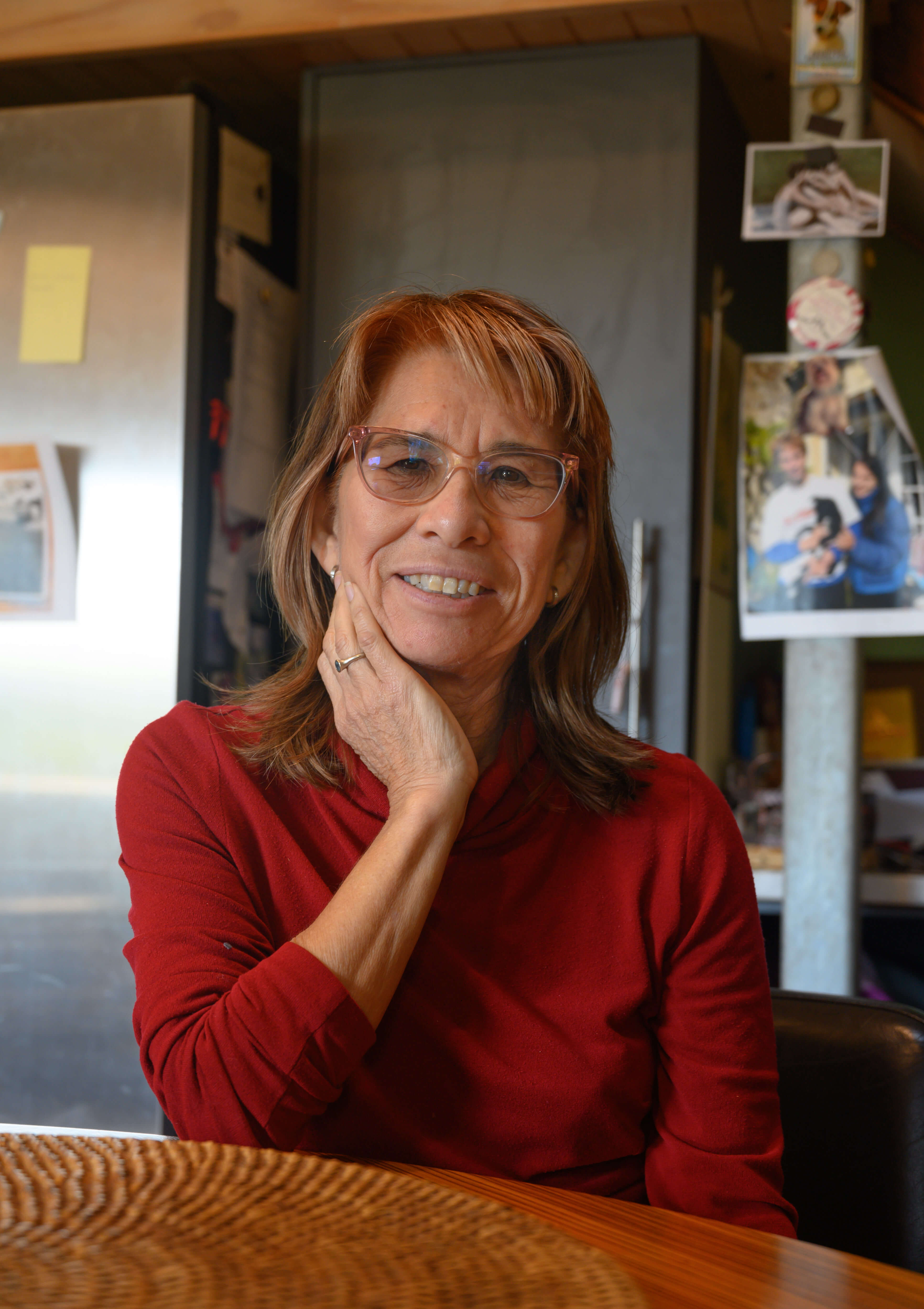
Allison at her home, which she designed, in Forest Lodge.
Dorcas: So sexuality wasn't something that was explicitly talked about.
Allison: No, no, no [laughs]
D: What would it have been like? Do you know why it was so?
A: Oh, I think it was just the era. See, remembering that I'm 60. That was a long time ago. I mean, I was born in 1960 so I was 10 in 1970. For me, I got to be in that generation where the sexual revolution sort of happened. I mean, I was the classic age for that all to happen. I was in my teens in the 1970s. In the 1980s, I was in Sydney, doing all the partying, all the stuff that went with that for the 1980s, which was just the perfect time to be partying in actual fact. Because it was before AIDS happened, and before all the bad things happened. It was actually very easy. The pill had just come out when I was 16, 17, and the Family Planning Association had been established. So if you wanted to get contraceptives, you didn't have to go to the family doctor, you didn't have to tell your parents you were doing it. And it was free, the Family Planning Association. So if you just went there, they would give you a contraceptive tablet.
D: Oh yeah?
A: It was so easy. Your parents didn't need to know. I mean, I never talked to mum about sex. It was very much what your friends were doing and everyone around you was doing. And it was a pretty free life in that sense. I grew up in a suburb where everyone was in their new project home so all the kids were more or less my age. It was a great life. And we were on the beach. So there were all the beach parties. It was a bit like [the book] Puberty Blues. It was a great way to grow up.

Allison is an architect.
D: So there's a lot of societal changes, major shifts happening at the time.
A: I don’t remember anyone getting pregnant, to be honest, out of that collection. Which was always a huge risk but I went on the pill when I was about 17. The boyfriend I was with then who I went out with for a year or so — I dropped him when I went to university and found better people to go out with — [was] who I lost my virginity to. So that would have been at 17. And I was pretty typical of all of my friends. That was the standard sort of thing to do, then.
D: Like having a boyfriend and then losing your virginity.
A: Well then go on the pill because, you know, we're not silly. You had a boyfriend that established it was worth going through that hassle of going on the pill. It was pretty normal. Then I went out with a few guys from uni. Somebody broke my heart. So when I got a job in Sydney, I left, wasn't going to stay [in Perth] and have my heart broken one more time.